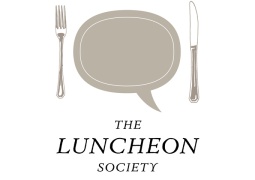 The Luncheon Society is not merely for lunch these days. In fact, a growing number of gatherings take place in the evening hours and perhaps serve as a welcome final stop before making the long journey home. We started adding nightly gatherings—out of necessity—to make the most out of our Manhattan soirées, but we quickly understood they could easily take place in Los Angeles and San Francisco. If I catch a quick Southwest flight out of Oakland at 5PM, I can touch down in Burbank a hour later and find myself ready to host a dinner by 7PM. Then it is back to reality the next morning with the 6 AM return flight back to the Bay Area. Life continues from there.
The Luncheon Society is not merely for lunch these days. In fact, a growing number of gatherings take place in the evening hours and perhaps serve as a welcome final stop before making the long journey home. We started adding nightly gatherings—out of necessity—to make the most out of our Manhattan soirées, but we quickly understood they could easily take place in Los Angeles and San Francisco. If I catch a quick Southwest flight out of Oakland at 5PM, I can touch down in Burbank a hour later and find myself ready to host a dinner by 7PM. Then it is back to reality the next morning with the 6 AM return flight back to the Bay Area. Life continues from there.
When I cannot host a luncheon or dinner, friends like Rucker Alex will pinch in and do a wonderful job, as was the case for the Dukakis gathering in Boston.
Over the years, nobody has joined The Luncheon Society more often than Mike and Kitty Dukakis. The first gathering took place in January 1999, when a group of us flew down to Los Angeles for a quick luncheon. It has become tradition around here that the first gathering of the year (whether lunch or dinner in either San Francisco or Los Angeles) takes place with Mike and Kitty.
Over the years, Mike has usually been several steps ahead of the pack to tell Democrats that good ol’ boring precinct walking wins elections, even in a media state like California. Democrats surged in 2006 on building a 50 state strategy and the strength Obama’s win in such unlikely venues as North Carolina, and Virginia, resulted from grassroots leather on the ground.
 Democrats had a short memory and in 2010, it showed. However, those who remembered those basic grassroots lessons emerged victorious and such was the case with Colorado Senator Michael Bennett. Bennett, who to the surprise of everybody was chosen by Governor Bill Ritter to succeed Ken Salazar (who became President Obama’s Secretary of the Interior) had no natural political base. He fought off a white knuckle challenge from the Speaker of the House and barely squeaked by in the general election against Tea Party Republican Ken Buck. Bennett attributes his win to the Dukakis edict. He built an organization on the fly and won those crucial counties.
Democrats had a short memory and in 2010, it showed. However, those who remembered those basic grassroots lessons emerged victorious and such was the case with Colorado Senator Michael Bennett. Bennett, who to the surprise of everybody was chosen by Governor Bill Ritter to succeed Ken Salazar (who became President Obama’s Secretary of the Interior) had no natural political base. He fought off a white knuckle challenge from the Speaker of the House and barely squeaked by in the general election against Tea Party Republican Ken Buck. Bennett attributes his win to the Dukakis edict. He built an organization on the fly and won those crucial counties.
Dukakis was able to partially organize California in 1988 and reversed the Mondale rout from four years earlier and set the table for Clinton’s win in 1992. Dukakis organized roughly 15,000 of the states 35,000 voter precincts and while Mondale lost the state by 1.5 million votes, Dukakis only lost the state by a slim 300,000. Clinton would win four years later by 1.5 million votes, effectively turning the state from red to blue on the national level.
I’ve always believed that Dukakis was too hard on himself when reflecting upon 1988. The candidate does not plan the strategy or execute the get-out-the-vote tactics—the campaign staff does. Until 1992, Democratic strategists remained very green, not unlike the New York Mets of the early 1960’s, and got beaten often on the national playing field. People forget that Democrats only won one presidential election between 1964 and 1992—and Carter barely won in 1976. The Republicans, on the other hand, played with the same basic group since 1968. Jim Baker ran the Ford campaign of 1976 and learned lessons that were parlayed in the 1984 Reagan reelection and 1998 Bush win. When Dukakis lost John Sasso in the early going, they lost their toughest operative. Continue reading







































































